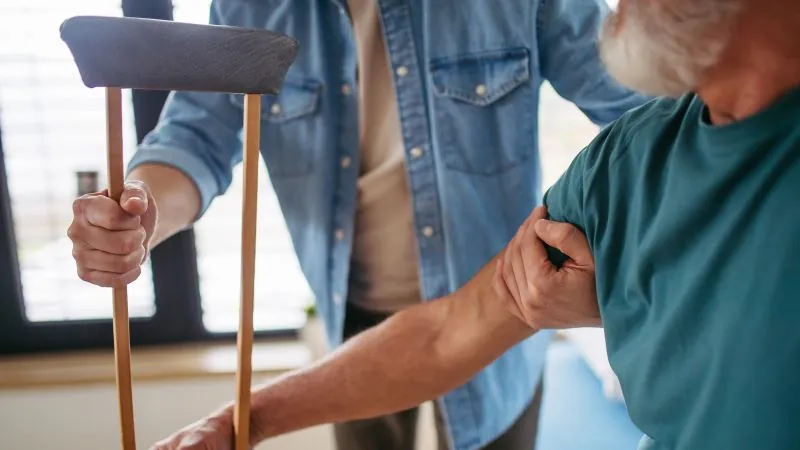
Shocking New Findings: Vitamin D and Calcium Supplements Do Not Prevent Falls in Seniors! Here’s What You Should Do Instead
2024-12-18
Author: Wai
Shocking New Findings: Vitamin D and Calcium Supplements Do Not Prevent Falls in Seniors! Here’s What You Should Do Instead
In a groundbreaking new draft recommendation, the US Preventive Services Task Force has declared that popular vitamins—specifically Vitamin D and calcium—are ineffective in reducing the risk of falls or fractures among generally healthy older adults. This startling update includes new guidance for men over the age of 60 for the first time, shifting the focus on what truly matters for senior health.
Historically, the task force had advised against daily supplementation with low doses of Vitamin D and calcium for women who are postmenopausal, but they had not previously made similar recommendations for men. Now, the panel strongly discourages reliance on these supplements for fracture prevention across the board.
While Vitamin D and calcium remain crucial nutrients for overall well-being, experts stress that older adults must adopt alternative strategies to mitigate their risk of falls and fractures. Dr. Goutham Rao, a leading member of the task force, emphasizes this point, noting that their research indicates no beneficial dose of these supplements for prevention.
Vitamin D plays an essential role, assisting the body in calcium absorption and contributing positively to immune function, brain health, and muscle performance. Therefore, although supplementation may not prevent fractures in the elderly, the nutrients should not be dismissed entirely. Dr. Rao points out, "It’s important to understand that our findings don’t undermine the necessity of Vitamin D and calcium for various body functions."
Dr. Sherri-Ann Burnett-Bowie of Harvard Medical School reassured that all adults should aim to meet the daily recommended intake, ranging from 600 to 800 IU of Vitamin D and between 700 and 1,200 mg of calcium. However, she highlights that many U.S. residents often fall short of these recommendations, particularly among certain ethnic groups.
The task force’s draft recommendation, currently under public comment until January 21, specifically advises against the supplementation of Vitamin D for the primary prevention of fractures in older adults living independently. Recent research supports these conclusions: a comprehensive study published in the *New England Journal of Medicine* found that taking up to 2,000 IU of Vitamin D3 daily did not significantly lower fracture risks compared to a placebo.
Moreover, the recommendation notes a potential risk associated with Vitamin D supplementation: an increased likelihood of kidney stones. Thus, the task force encourages a cautious approach, particularly for adults with insufficient sun exposure or restricted dietary intakes.
How can seniors effectively reduce their risk of falls without relying on these now-questioned supplements? Experts recommend a multifaceted approach:
1. Osteoporosis Screening
Particularly for women aged 65 and older, regular screening is essential.
2. Physical Activity
Engaging in structured exercises to improve strength and balance—think resistance training, yoga, and tai chi—can make a significant difference.
3. Vision and Hearing Tests
Regular check-ups ensure that sensory deficits are addressed, reducing the likelihood of falls.
4. Home Safety
Taking precautions during winter months, such as avoiding icy surfaces, can prevent accidental falls.
5. Assistive Devices
The appropriate use of canes or walkers can provide additional stability and support during daily activities.
With more than one in four older adults in the U.S. experiencing falls every year, prioritizing practical measures over outdated supplement advice is critical for their health. So, take charge of your wellness journey and explore these proactive steps to enhance your quality of life!

 Brasil (PT)
Brasil (PT)
 Canada (EN)
Canada (EN)
 Chile (ES)
Chile (ES)
 Česko (CS)
Česko (CS)
 대한민국 (KO)
대한민국 (KO)
 España (ES)
España (ES)
 France (FR)
France (FR)
 Hong Kong (EN)
Hong Kong (EN)
 Italia (IT)
Italia (IT)
 日本 (JA)
日本 (JA)
 Magyarország (HU)
Magyarország (HU)
 Norge (NO)
Norge (NO)
 Polska (PL)
Polska (PL)
 Schweiz (DE)
Schweiz (DE)
 Singapore (EN)
Singapore (EN)
 Sverige (SV)
Sverige (SV)
 Suomi (FI)
Suomi (FI)
 Türkiye (TR)
Türkiye (TR)
 الإمارات العربية المتحدة (AR)
الإمارات العربية المتحدة (AR)